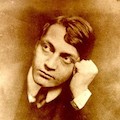The Drama of Historical Materialism
Bernard Shaw is not a Marxist. Jevons’s theory of value fixes the doctrine of enjoyment in a system, corresponding to his utilitarian questioning, while Marx’s work-abstraction means nothing to him. He does not understand class theories. Here, too, they are brought up in English relations: Fabianism from above and Unionism from below indicate the framework of its revolution. He is socialist, but he does not understand continent theory in part, he partly refuses it. But while he rejects the doctrine, the criticism is all the more consistent with it. He does not, therefore, deny the problem, but without recognizing the material substrate of actual development, it is a utopian necessity and it is also one of the darkest, individual fantasies. This is how his theory was created, the doctrine of the redeemer Superman ( Übermensch ), who, however, was born not of a new morally fertilized society (which Nietzsche longed for) but of a conscious and purposeful organization of the whole to carry out racial selection. The Übermensch created by ethical selection replaces Superman’s physiologically determined production as a program.
Articles by M. Beer (Neue Zeit) and Ed. Bernstein (Sozialistische Monatshefte) deal with the thinker Shaw. However, both make a mistake that becomes fatal in our understanding of Shaw’s dramas: they start from the unity of the playwright and the thinker…. Beer is said to have explained its world of thought from Shaw’s plays: but this is only a literary appearance. He really only matured from his dramas as much as he could see through the glasses of Shaw's views and theories. However, this is not much. Because the essence and greatness of acting is that it does not give theory, does not systematize and does not build, but criticizes. He dissects and describes. And we intact to show that he has created insights with an intuitive blink of an eye that contain a complete refutation of his own thoughts. The conjecture with which he constructed his loose dramatic works was seen in a peculiar way more sharply than the self-conscious analysis with which he constructed his system.
His work of fiction is completely filled with a critique of today's order. This unit of content stands out in all of his writings with a denial that even denies the genre. His aphoristic act is just more of a dramatic paradox. But neither this nor his genre. Wilde, the new Merlin, entertains the bourgeoisie by sparking the endless and surprising possibilities of colorful and rich value judgments in front of him, but at the crucial moment his nervously squeezing pocket is whispered by the magician who whispers, “It’s not a flame, it’s just a fire. It’s all impossible: it’s not true! ” Shaw's aphorism is not a fiery chrysanthemum rain, but a "frog," followed by a boiling stench of sulfur and the boasting of the grinning Mephistopheles, "Behold, all things are impossible and impossible, and yet true!" Because the paradox is not a style but an object of Shaw’s art.
Why this is so is explained in Shaw’s drama. That, too, is just an appearance. Because it is not drama that does not discuss the will of the individual to act, in which leadership is not taken by “persons” but by “time” and “stage”. And already at Shaw, the individual does not take the initiative, does not shape the relationships with which Harera wins or fails. The “individual” in his case is mostly a bugger who, on a frame of life cushioned with comfortable views (ideology), wants to enjoy its tranquility and he never disturbs the “relationships” if only the “relationships” leave him alone! But the relationship is starting to get unsuitable due to some complication. They take on unusual and uncomfortable figures: the “view” only sets in for a merry or sad tragedy: relationships unfold, shift, frustrate until that much-suffered view, the empty bladder, finally bursts mournfully… So the only reality is the invisible and an intangible world that drives us into a vehicle, while any material world of thought of an individual is normally filtered through a false refraction of views and only a shallow idealism remains. This is how Shaw created the passive drama. But just as Marx’s conception is not mechanistic, so is it not a doomed drama. A life force (a force of biological inactivity, especially in a woman) is a spring that blindly encourages the maintenance of individual existence. But the impersonality of today’s legal and social movement of society, the will, is a social bond: it is the mantinelle that throws back the invading individual invisibly but with physical regularity. The image of this passive bowling game is provided by Shaw in human action.
Text Informations
Reference: 1907a
Original Publication: “A Történelmi materializmus Drámája”, Huszadik Század, vol. 8, n°1, 1907, pp. 66-71
KPA: 01/01
Other Languages:
| Lg | Name |
|---|---|
| DE | |
| FR | « Le drame du matérialisme historique » |

